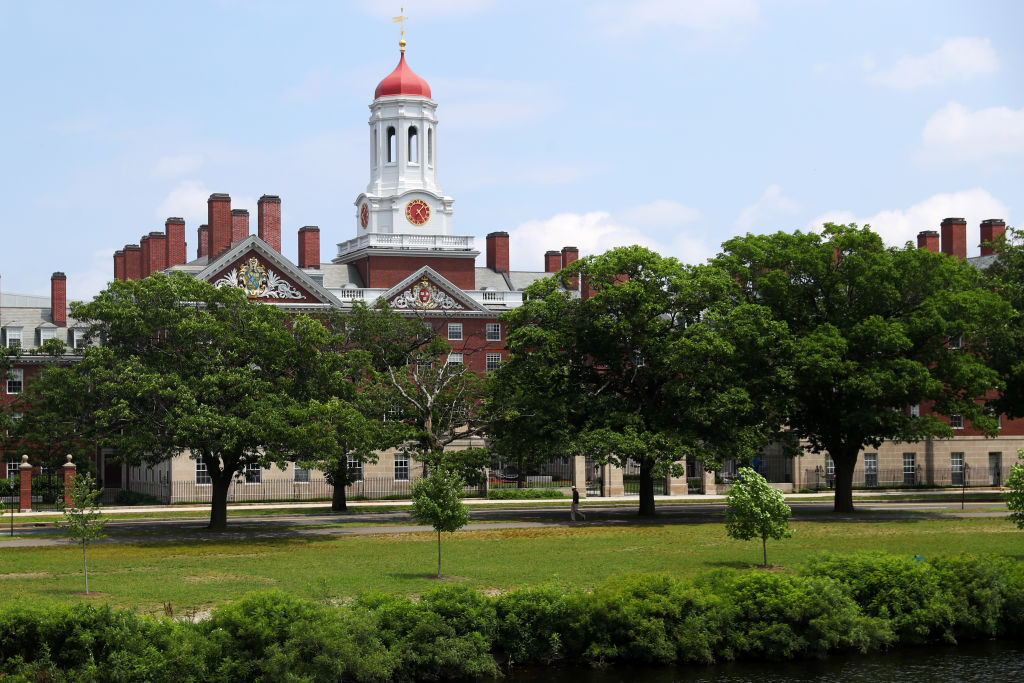Maybe there is something for which we have to thank Hamas after all. That savage terror group epitomizes the latest form of murderous, antisemitic brutality. The world — most of it — has been sickened and appalled by the spectacle of burnt, mutilated and headless corpses. Aiming at maximum shock, the terrorists made no distinction between young and old, male and female, Israeli and foreign national.
Among susceptible souls in the academy and other ideological fever swamps, however, a familiar moral perversion instantly came to the fore. The weasel word “but” was conscripted and put to work early and often. Without warning, Hamas attacked and murdered Israelis. Yet somehow the Israelis are to blame, or half to blame, or at least complicit in the slaughter. Barack Obama gave a sterling performance in a much-shared article on Medium. Yes, we must lament the brutal attack by Hamas, quoth the former president. But… You know the script. António Guterres, secretary-general of the United Nations, sang a version of the same song when he warned that the attacks by Hamas didn’t occur “in a vacuum.”
The scene at many colleges and universities dispensed with such subtlety. There, pro-Palestinian, anti-Jewish protests made headlines. Some thirty student organizations at Harvard dotted the campus with pro-Palestinian posters and manifestos. At Cooper Union fifty Jewish students were barricaded into a room to protect them from rampaging protesters. At Columbia University, Joseph Massad, a professor of modern Arab politics, joyfully described the Hamas massacre as “awesome.”
Such displays have been an element of campus moral idiocy at least since students made common cause with the Viet Cong in the 1960s. But there may be a difference this time. Hamas, in its appeal to left-wing elements on college campuses, just might be performing a much-needed emunctory role. Major donors across the country, appalled by the spectacle of pro-Palestinian demonstrations by students and faculty, have reacted with outrage, disgust and a conspicuous snapping-shut of their checkbooks.
The billionaire Leon Cooperman, for example, has given $50 million to Columbia, with more promised. He is pulling his support. The same scenario is repeating itself at Harvard, at UPenn and elsewhere. Maybe, just maybe, the actions of these donors will accomplish something that all other efforts have failed to do: change the moral and intellectual culture in academia for the better.
At one point in the dim and distant past, I thought about writing a book called Retaking the University: A Battle Plan. I even wrote an essay with that title for the New Criterion in the mid-2000s. At the time, I thought it might be a sort of opening sally in the campaign to recapture higher education from the twisted grip of the Marxists, the deconstructionists, the feminists and racial-grievance mongers, the anti-humanists and cynical relativists of all description.
I had been writing about higher education since the mid-1980s and witnessed the “tenured radicals” infiltrate the commanding heights of the education establishment. No longer students or junior professors, they were now department heads, deans, provosts and presidents. I understood that.
My bright idea was to appeal over the heads of that establishment to parents, alumni, boards of trustees. “Surely,” I reasoned, “they can help return sanity to an educational system that has been hollowed and corrupted by the malignant cornucopia of radical politics.”
It pains me to admit it, but I was completely wrong. My “battle plan” shared the fate of the myriad other proposals to “reform higher education.” That cottage industry, replete with think tanks, conferences, special programs, institutes and initiatives cropping up like mushrooms after a rain, has achieved little more than window dressing.
Why? There are several reasons. One is that the left-wing monoculture is simply too deeply entrenched for these initiatives, laudable and necessary though they are, to make much difference. For many years now, I have heard commentators from sundry ideological points of view predict that the reign of political correctness and programmatic leftism on campus had peaked and was about to recede. I wish I could share that optimism. I see no evidence to support it.
I used to think that appealing to trustees, parents, alumni and other concerned groups could make a difference. I have become increasingly less sanguine about that strategy. For one thing, it is extremely difficult to generate a sense of emergency strong enough that those groups will actually take action, let alone maintain the sense of emergency long enough to have an effect.
What’s more, those groups are increasingly impotent. Time was a prospective hiccup in the annual fund would send shivers down the spine of an anxious college president. These days many colleges and universities are so rich that they can afford to cock a snook at parents and alumni. Forget about Harvard and its $50 billion. Even many small colleges are sitting on huge fortunes. The money makes them largely unaccountable.
Or so it seemed. The cheerleading for Hamas on many campuses has led wealthy donors to suspend their financial support, but it has also precipitated a shattering moment of moral clarity. Quoth one major donor to Harvard: “We are stunned and sickened by the dismal failure of Harvard’s leadership to take a clear and unequivocal stand against the barbaric murders of innocent Israeli civilians.”
The withdrawal of financial support may sting. The real change, if it comes, will be the loss of widely shared social legitimacy that this revolution-by-major-donors may precipitate. Ultimately, that will lead to a diminution of that most precious asset, prestige. I sense something different in the revulsion against the pampered radical-chic outposts this time. It just might mark the beginning of a long-overdue sea change in how our society regards academia. To which I say: Amen.
This article was originally published in The Spectator’s December 2023 World edition.


























Leave a Reply